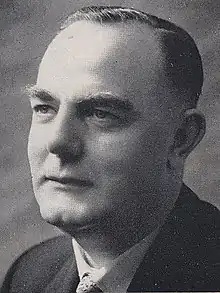1970 South African general election
General elections were held in South Africa on 22 April 1970 to elect members of the 166-seat House of Assembly. Parliament was dissolved on 2 March and the deadline for the submission of candidates was 13 March. This was the first time in South African history that the House elected was responsible entirely to white people, as the seats of the four MPs elected separately by "qualified" Cape Coloured voters expired in the same year, heralding the completion of the process of political apartheid. Similarly, it was the first election after the expulsion of Albert Hertzog and many verkrampte (hardline) representatives from the ruling National Party in 1969, who formed the new opposition Herstigte Nasionale Party (Reconstituted National Party) in opposition, with limited success.
| |||||||||||||||||||||||||||||||||
All 166 seats in the House of Assembly | |||||||||||||||||||||||||||||||||
|---|---|---|---|---|---|---|---|---|---|---|---|---|---|---|---|---|---|---|---|---|---|---|---|---|---|---|---|---|---|---|---|---|---|
| Turnout | 74.35% ( | ||||||||||||||||||||||||||||||||
| |||||||||||||||||||||||||||||||||
| |||||||||||||||||||||||||||||||||
 |
|---|
| This article is part of a series on the politics and government of South Africa |
|
|
The National Party (NP) won another election, for the first time under the leadership of John Vorster. Several new representatives were elected, including Chris Heunis, future Acting President and Pik Botha, future Minister of Foreign Affairs for 17 years, who made his maiden speech demanding that the government sign the UN Declaration of Human Rights.[1]
Given the split with both liberal camps and arch-conservative NP supporters, the government lost support in parliament for the first time since the 1948 election, its caucus being reduced by eight seats. While Hertzog's HNP did not win any seats, the split in the nationalist voter base benefitted the moderate United Party (UP) in some constituencies. On an ideological spectrum, the HNP (using the NP:s old acronym from the 1940s) was a psychological and cultural loss, with stalwart Afrikaner leader and NP founder JBM Hertzog's son denouncing the government for becoming bloated and moderate and having abandoned the goals of the Afrikaner nationalist movement in favour of economic and diplomatic realities. The result thus marked a realignment, with white voters jointly backing a moderate NP with a considerable majority, while the restoration of an Afrikaner homeland was abandoned as unachievable and anachronistic.
Following decolonisation, now burgeoning, Vorster attempted to pursue a policy of peaceful coexistence between the white minority government and Black independent neighbours (in 1970 only Botswana, Lesotho and Swaziland) as well as the greatest possible solidarity between Anglophone Whites and Boers, seen as pragmatic and antithetical to the goals of NP stalwarts of creating an Afrikaans-language republic for the Boers and their descendants, with other whites as (comparatively) privileged resident citizens, but outside the boundaries of the "chosen" people.
Helen Suzman, member of parliament for Houghton, retained her seat as the sole representative of the liberal Progressive Party.
Results
Eleven members were elected unopposed. Voting in one constituency did not take place, with the National Party winning the subsequent by-election to give it a total of 118 seats.[2]
 | |||||
| Party | Votes | % | Seats | +/– | |
|---|---|---|---|---|---|
| National Party | 822,034 | 54.89 | 117 | –9 | |
| United Party | 553,280 | 36.94 | 47 | +8 | |
| Herstigte Nasionale Party | 53,735 | 3.59 | 0 | New | |
| Progressive Party | 51,742 | 3.45 | 1 | 0 | |
| United National South West Party | 8,396 | 0.56 | 0 | 0 | |
| National Alliance Party | 2,261 | 0.15 | 0 | New | |
| Independent Nationalist | 1,493 | 0.10 | 0 | New | |
| Independent National Party | 1,114 | 0.07 | 0 | New | |
| Democratic National Party | 394 | 0.03 | 0 | New | |
| Front Party | 74 | 0.00 | 0 | 0 | |
| Independents | 3,129 | 0.21 | 0 | 0 | |
| Vacant | 1 | – | |||
| Total | 1,497,652 | 100.00 | 166 | –4 | |
| Valid votes | 1,497,652 | 99.34 | |||
| Invalid/blank votes | 9,982 | 0.66 | |||
| Total votes | 1,507,634 | 100.00 | |||
| Registered voters/turnout | 2,161,234 | 69.76 | |||
| Source: Potgieter[3] | |||||
References
- "Archived copy". Archived from the original on 1 October 2010. Retrieved 28 September 2011.CS1 maint: archived copy as title (link)
- South Africa Inter-Parliamentary Union
- Dirk J. Potgieter (1971) Standard Encyclopaedia of Southern Africa, Volume 4, p273

.jpg.webp)